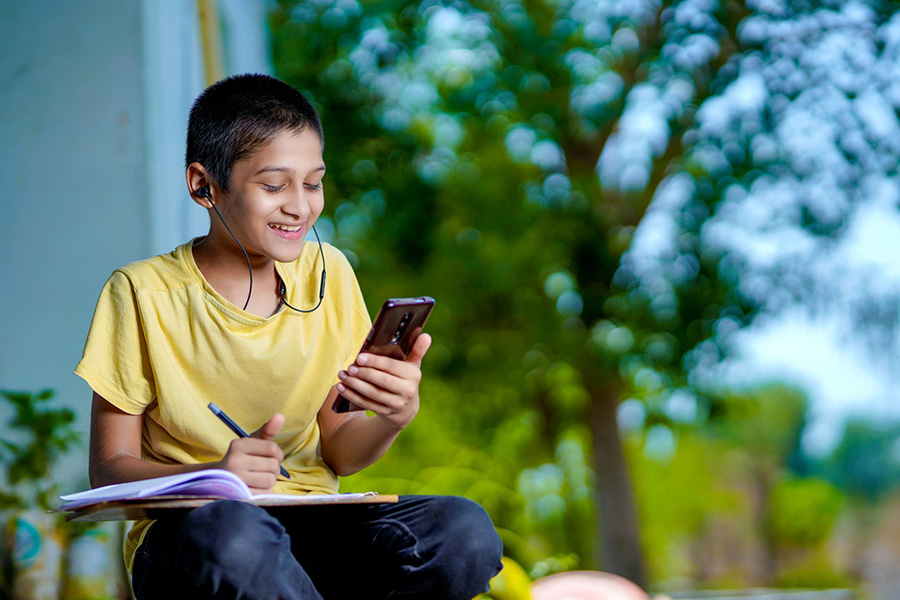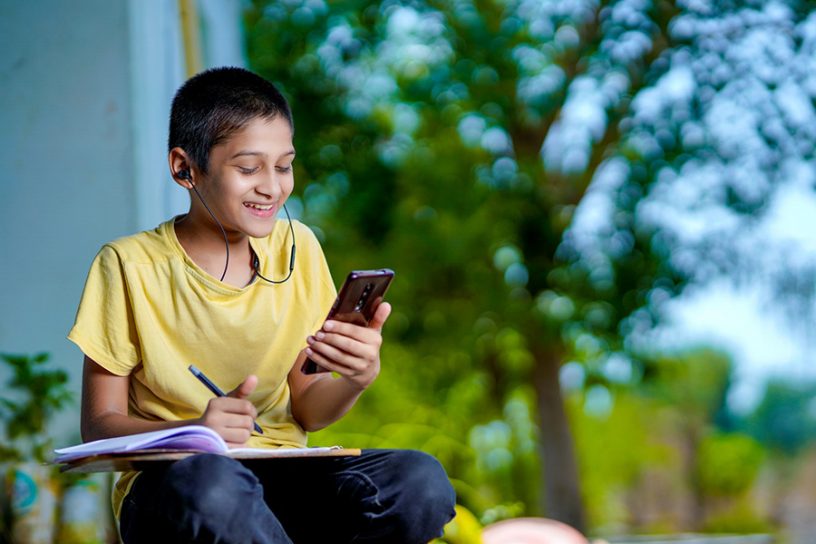
The results suggest that well-designed low cost interventions that provide remote instructions via phone calls and simple text messages along with automated voice calls to engage children could be a useful supplement for continued learning in the face of sudden shocks in low income countries.
Authors
Manini Ojha, Associate Professor, Jindal School of Government and Public Policy, O.P. Jindal Global University, Sonipat, Haryana, India.
Kartik Yadav, Indian Institute of Management Nagpur, MIHAN, Nagpur, India.
Summary
In view of school closures due to the COVID-19 pandemic, this paper examines how a Home-Based Learning program affects learning outcomes of children in under-resourced communities. To overcome limited internet connectivity, the program provides remote instructions via phone calls and simple text messages along with automated voice calls to engage children enrolled in grades one to five in activity-based learning content.
This intervention was conducted in three districts in the state of Odisha in India. Using a difference-in-differences framework, we find that the intervention led to a statistically significant improvement in basic number recognition and arithmetic operations, and language learning scores of children by 4.69 percentage points and 5.52 percentage points, respectively.
Our results are robust to alternative methods of estimation and application of Lee bounds, thus indicating that well-designed low cost interventions could be a useful supplement for continued learning in the face of sudden shocks in low income countries. With a rise in hybrid format of teaching and learning, such interventions have the capability to cushion the decline in learning levels and provide a safety net in the event of school closures.
Published in: Economics of Education Review
To read the full article, please click here.


